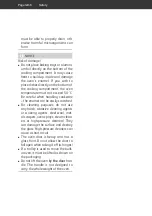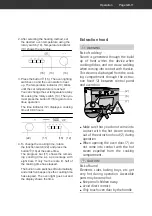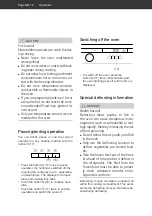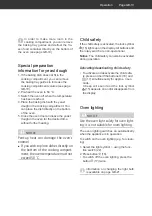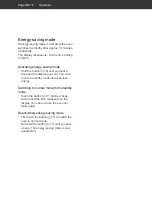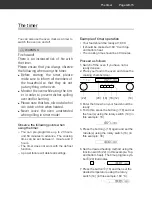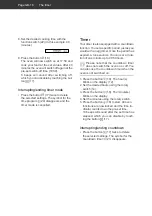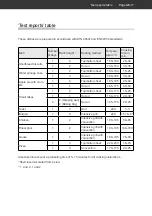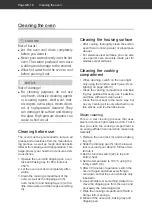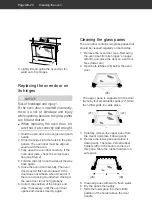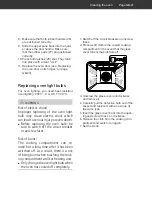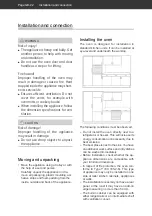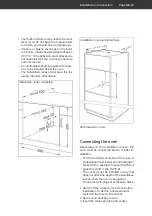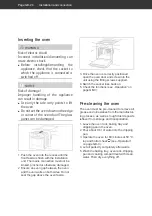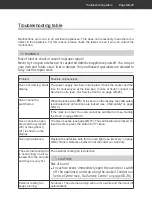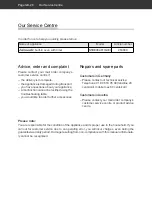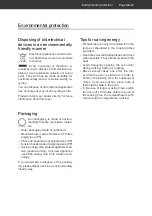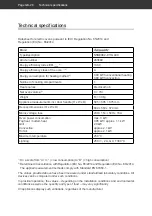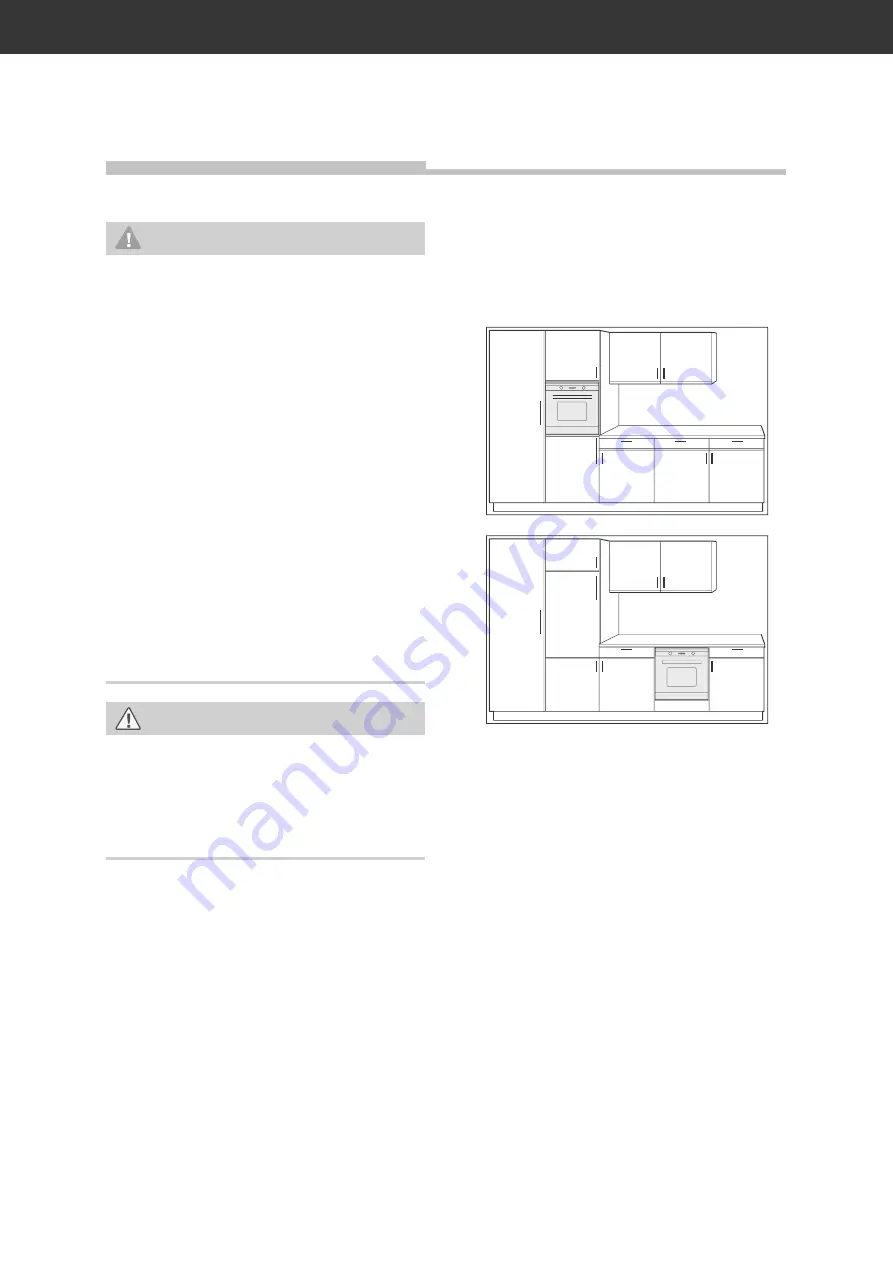
Installation and connection
Page GB-22
WARNING
Risk of injury!
■
The appliance is heavy and bulky. Get
another person to help with moving
and installation.
■
Do not use the oven door and door
handle as a step or for lifting.
Fire hazard!
Improper handling of the oven may
result in damage or cause a fi re. Heat
trapped inside the appliance may short-
en its service life.
■
Ensure suffi cient ventilation. Do not
cover the vents, for example with
oven mitts or cookery books!
■
When installing the appliance, follow
the dimension specifi cations for ven-
tilation.
CAUTION
Risk of damage!
Improper handling of the appliance
may result in damage.
■
Do not use sharp objects to unpack
the appliance.
Moving and unpacking
• Move the appliance using a trolley or with
the help of a second person.
• Carefully unpack the appliance and re-
move all packaging, plastic moulding, ad-
hesive strips and foam padding from the
inside, outside and back of the appliance.
Installing the oven
The oven is designed for installation in
standard kitchen units. It can be installed at
eye-level and underneath the worktop.
The following conditions must be observed:
– Do not install the oven directly next to a
refrigerator or freezer. This will increase its
energy consumption unnecessarily due to
heat emission.
– The best place is next to the sink. You have
an additional work surface and dirty dishes
can be washed immediately.
– Before installation, check whether the ap-
pliance dimensions are compatible with
your furniture dimensions.
– In respect of fire protection, the oven con-
forms to Type Y (EC 335-2-6). This type
of appliance may only be installed on one
side of taller kitchen cabinets, appliances
or walls.
– The installation recess may not have a rear
panel, at the most it may have an add-on
edge measuring no more than 50 mm.
– The built-in cabinet can be equipped with
either ledges/rails or an intermediate shelf
with ventilation cut-out.
Installation and connection

